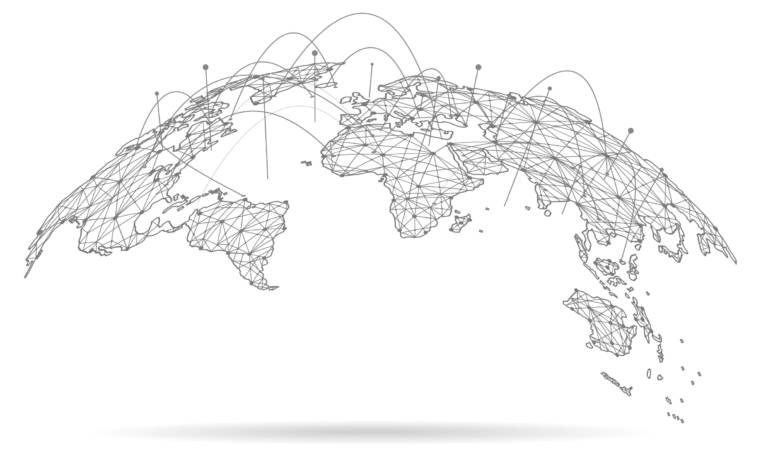How to Effectively Use Letters Rogatory in Cross-Border Legal Cases
How to Effectively Use Letters Rogatory in Cross-Border Legal Cases
Blog Article
The Duty of Letters Rogatory in International Regulation: Key Insights
Letters rogatory serve as a pivotal instrument in international law, promoting cross-border lawful support by enabling territories to officially ask for proof and actions from one an additional. What ramifications might these challenges have for future lawful process?
Meaning of Letters Rogatory
In the realm of global law, letters rogatory function as formal demands issued by a court in one jurisdiction to seek aid from a court in another jurisdiction. Letters rogatory. These requests are specifically substantial in cross-border legal process, where the enforcement of a court's order or the event of proof may be restrained because of jurisdictional limitations

The procedure usually needs the requesting court to verbalize the details info or action required from the foreign court, sticking to the legal protocols and conventions developed between the territories involved. Once issued, the letters rogatory are sent with polite channels, which might include consular offices or consular offices, to guarantee that the demand is identified and acted upon by the foreign court. Overall, letters rogatory exemplify the cooperative structure crucial for effective worldwide legal procedures.
Historical Context
Although the method of letters rogatory has old roots, its formalization within the structure of international legislation emerged dramatically in the 20th century. Historically, such requests for judicial assistance were used in numerous lawful customs, including Roman legislation, where they assisted in cross-border teamwork in lawful issues. The principle got restored attention with the rise of globalization and the enhancing complexity of international lawful communications.
The mid-20th century saw the facility of treaties and conventions that sought to systematize the process of letters rogatory. Especially, the 1970 Hague Convention on the Taking of Evidence Abroad in Industrial or civil Issues gave an organized technique, enhancing the effectiveness of these requests - Letters rogatory. This period marked a shift from casual arrangements to an extra systematic structure, which attended to the obstacles posed by differing nationwide lawful systems
As states came to be extra synergistic, the requirement for efficient systems to gather proof throughout boundaries emerged, enhancing the function of letters rogatory in facilitating international participation. Today, they stay an essential tool for acquiring evidence and guaranteeing that justice transcends nationwide borders, showing the developing nature of international legislation in response to worldwide obstacles.
Process of Issuing Demands
The process of providing letters rogatory commonly entails several vital actions made to ensure that requests for judicial assistance are clear, particular, and compliant with both residential and worldwide lawful criteria. A celebration seeking aid needs to prepare a formal demand that details the important facts of the instance, the relief sought, and the certain evidence or testament needed. This file has to be crafted with accuracy to meet the lawful demands of the jurisdiction in which it will certainly be submitted.
Adhering to the preparation of the demand, it is submitted to the appropriate authority, usually a court or an assigned governmental firm. This authority examines the request to guarantee it follows step-by-step norms and legal criteria. Once accepted, the request is transferred to the foreign jurisdiction via diplomatic networks.
Upon invoice, the foreign court reviews the request's conformity with its neighborhood legislations and techniques (Letters rogatory). If accepted, it proceeds to execute the request, which might involve the issuance of subpoenas or the collection of evidence. Throughout this procedure, maintaining clear communication in between the asking for and getting territories is crucial to make sure effective participation and the gratification of the request
Challenges and Limitations
Constraints and challenges often emerge in the process of carrying out letters rogatory, often stemming from varying lawful systems and treatments in between jurisdictions. One significant challenge is the differing criteria of go now admissibility for proof, which can lead to problems in the acceptance of paperwork asked for via letters rogatory. In addition, the lack of uniformity in legal terminology and definitions can create misunderstandings, complicating communication between courts in different countries.
Additionally, hold-ups prevail due to bureaucratic processes, as the request may require to go through multiple layers of lawful authorities prior to it is met. In some circumstances, the asked for territory might lack the needed resources or determination to work together, additionally impeding the process. Language barriers also add to obstacles, as exact translation of lawful files is important for making sure that the designated message is conveyed without distortion.
Lastly, sovereignty problems might develop, as some states hesitate to abide by requests that they regard as infringing upon their legal autonomy. These obstacles highlight the intricacies intrinsic in using letters rogatory, necessitating better harmonization and teamwork among international lawful systems to improve their effectiveness.

Effect On International Teamwork
Identifying the significance of letters rogatory in fostering worldwide teamwork is critical, as these requests facilitate cross-border legal support and promote collective initiatives in civil and criminal issues. visit this site right here By making it possible for one territory to officially ask for assistance from another, letters rogatory create a structured legal framework that enhances the efficiency of international communication in between judicial authorities.
Using letters rogatory helps to develop common trust and regard amongst countries, which is crucial in a significantly interconnected globe. They function as a device not just for gathering evidence yet likewise for making check my site sure that legal processes are upheld throughout boundaries. This is especially crucial in combating multinational criminal offense, where the inability to secure cooperation can threaten justice.
In addition, the dependence on letters rogatory can streamline complicated legal procedures, decreasing delays and unpredictabilities in worldwide investigations. The procedural safeguards integral in this procedure contribute to the defense of specific legal rights while helping with cooperation amongst states. Eventually, the impact of letters rogatory on global collaboration underscores their duty as important tools in the promo of justice, fostering a joint spirit that transcends national limits and legal systems.
Conclusion
In verdict, letters rogatory act as a vital tool in international regulation, helping with cross-border lawful support and participation. In spite of inherent difficulties such as varying bureaucratic delays and lawful standards, their standard treatments promote depend on among nations. The ongoing evolution of these systems is essential for improving the performance of international legal procedures, ultimately promoting more powerful cooperation in both civil and criminal issues throughout jurisdictions. The significance of clear interaction in this context can not be overemphasized.
Letters rogatory offer as a crucial tool in global regulation, facilitating cross-border legal assistance by allowing jurisdictions to formally request evidence and activities from one an additional.The procedure usually calls for the asking for court to express the details details or activity required from the international court, adhering to the legal protocols and conventions established in between the territories entailed. Historically, such demands for judicial help were used in different legal traditions, consisting of Roman regulation, where they promoted cross-border teamwork in lawful matters.The process of releasing letters rogatory commonly entails a number of vital steps created to guarantee that requests for judicial aid are clear, details, and certified with both global and residential legal criteria.In addition, delays are common due to governmental procedures, as the demand may need to pass via numerous layers of lawful authorities before it is fulfilled.
Report this page